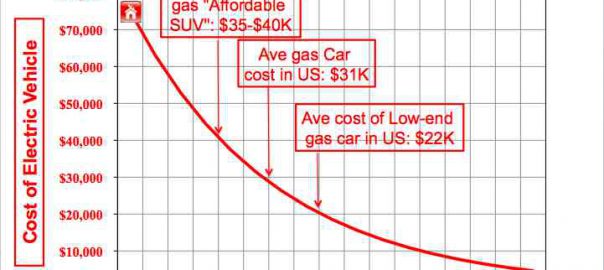The response to our article on Monday “Tesla Motor’s Elon Musk just killed the petrol car” was as fascinating as it was overwhelming. It is on track to be the most read story on our web-site to date.
The response was fascinating because it came from a mixture of those prepared to imagine the future, and read the signs of change, and those focused on short-term issues – be it meeting production schedules, reducing battery costs, or the immediate future of the Tesla share price.
Then there were those who simply didn’t want to know. The oil industry is one of them. It is making predictions, and seeking capital, as though the EV didn’t exist. The nuclear industry also wishes it wasn’t so. “This is bullish*t”, tweeted one of the most prominent nuclear advocates, still clinging to the old centralised energy model.
So we thought it would be useful to explain more about how it is that Musk has killed the petrol car. And for that we went back to Stanford University’s Tony Seba, the academic who predicts that fossil fuels, coal and oil in particular, will be redundant by 2030.
Seba tells RenewEconomy that the latest developments at Tesla, with the huge response to the sneak preview of its new Model 3, and the rollout over at General Motors of the Chevy Bolt, confirm his predictions. They may in fact accelerate them.
Seba’s message is not one that sits comfortably with incumbent industries, the auto and oil sectors in particular. He thinks that new internal combustion engine cars will not be on sale by 2025. Anywhere in the world. And there may not be many internal combustion engine buses, trucks, and tractors either.
Read more: Renew Economy

